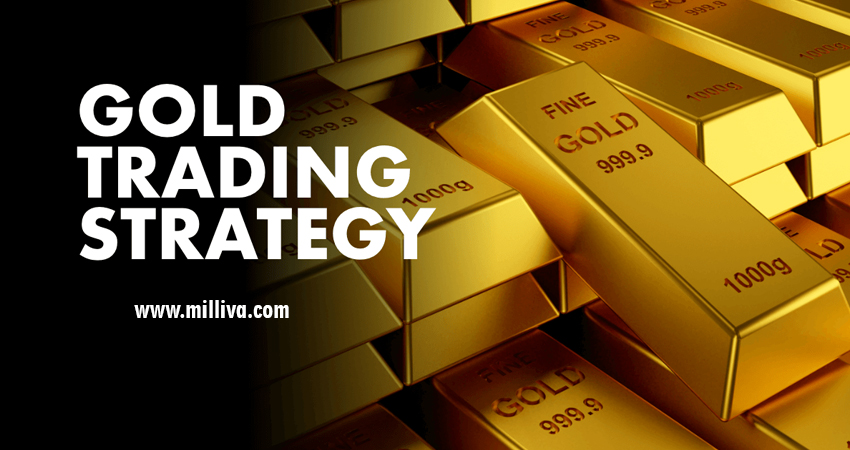Factors That Affects The Gold Price in Market

![]()
Since gold is one of the most valuable metals in gold market, it deeply ingrained in Indian culture. India accounts for over 25% of the world’s total physical demand for gold. It utilized on numerous events, including festivals and weddings. As a result of its high liquidity, gold regards as a fantastic investment choice. Gold can save you during a financial crisis since its value never completely decreases.
As a metal, gold has several useful uses. In addition to serving as a commodity or metal. It is also one of the oldest forms of exchange ever use by humans. Neolithic gold was a revolution when it was first discover because it could not duplicated. And as a result, it may be given a value, making it appropriate for market exchange.
When the gold rush occurred in California. It completely altered the financial landscape as individuals flocked to the region to mine gold and make their fortunes.
Gold consider to be of great significance in India as well. It has long been ingrain in Indian culture and tradition and is frequently offered as a gift on auspicious occasions.
In India, a number of factors affect the price of gold. India consumes a tremendous amount of gold, thus any movement in the global market affects the price of gold.
Gold has unique position in Indian households. Its use during elaborate wedding ceremonies to accessorizing with jewellery during significant festivals like Diwali. As a result of the increased consumer demand, gold prices rise throughout the wedding and festival seasons.
According to a report by the World Gold Council (WGC) in 2019. Indian households may have amassed up to 25,000 tonnes of gold. Making it the country with the highest holdings of the precious metal worldwide.
According to studies rural India consumes up to 60% of yearly gold consumption. Which estimated to be between 800-850 tons.
What Drives Gold Trading by Investors?
Investing in gold has a number of advantages, including the following:
Hedge against inflation: Despite the tragic occurrences of economic collapse and market instability, gold shows to reflect favourable returns. Gold investors can utilize it as one of the finest ways to protect themselves from inflation and price changes. Long-term results have shown it to be a valuable and profitable asset.
Exchange Traded Funds and Fund of Funds : Although buying gold directly has the danger of depreciation and theft. Investors can steer clear of these terrible occurrences by purchasing gold through ETFs and FoFs.
Creating a broad portfolio: Gold investments can also used to diversify an investor’s financial holdings by providing simple and well-known investment vehicle.
Liquidity: Gold funds have significant liquidity, which makes investing in gold and selling investments very simple and rapid.
After over these advantages of gold let’s look at the various aspects that affect the price of gold in India.
Other elements that may influence the price of gold include:
Inflation
Gold prices significantly impacted by inflation, which is the rise in the cost of goods and services. The price of gold typically changes in direct proportion to inflation, meaning that higher levels of inflation typically cause high gold prices since the value of money decreases. This is due to the fact that during times of inflation, individuals typically prefer to store wealth in the form of gold, as gold’s value thought to be stable over the long term, increasing demand. As a result, gold also serves as a tool for inflation hedging.

Rates of Interest
Under normal circumstances, interest rates and gold prices have historically had an inverse relationship; with rising interest rates, people typically prefer selling gold to make more money. However, as the interest rate falls, more people choose to purchase gold, driving up both its demand and price.
The Market for Indian Jewelry
Indian households have historically seen gold as a strategic asset that has also assimilated into Indian culture. Gold has an unique position in Indian households, from its use during elaborate wedding ceremonies to accessorizing with jewellery during significant festivals like Diwali. As a result of the increased consumer demand, gold prices rise throughout the wedding and festival seasons.
According to a report by the World Gold Council (WGC) in 2019, Indian households may have amassed up to 25,000 tonnes of gold, making it the country with the highest holdings of the precious metal worldwide.
Pleasant Monsoon Rains
According to studies, rural India consumes up to 60% of India’s yearly gold consumption, which is estimated to be between 800-850 tonnes. As a result, the demand for gold in the country is very dependent on the agricultural market, and the farmers’ income is largely dependent on the quality of their crops. Good monsoon rains increase demand for gold in the nation, which prompts farmers—who also use about a third of the nation’s gold—to purchase gold to build wealth.
Treasury Reserve
The Reserve Bank of India, along with the central banks of the majority of other nations, keeps gold reserves alongside their currency. When the RBI starts purchasing more gold than it is selling, the price of gold rises. This is because there is a shortage of gold and the market is experiencing an increase in cash flow.
Defense Against Uncertainty
When the market is volatile, people frequently choose to invest in or purchase gold as a commodity. An economic downturn or political unrest may be the blame for this. When other assets lose value, gold is seen as a good alternative since its value is consistent over the long term. Furthermore, uncertainty is more psychological in nature than other influences on gold price because it isn’t a quantifiable number.
Geographical Politics
Given that India is one of the biggest users of gold, any change in the price of gold on the international market will impact its price in India. Additionally, investors view gold as a safe haven during times of political unpredictability or geopolitical unrest, which raises demand for it and consequently its price. The demand for gold tends to increase during such crises, making it a crisis commodity for parking funds. In contrast, other asset classes would often see a decline in their value during such crises.
Impact of the Rupee on Gold
It is crucial to comprehend how India’s gold price is impacted by the rupee-dollar relationship. Given that the vast bulk of physical gold is imported, the price of gold in rupees will rise as the rupee depreciates versus the dollar. Therefore, a falling rupee could reduce India’s appetite for gold.
Bottom Line:
One of the more popular investment possibilities in India is gold, which is regarded as a significant monetary asset. In unpredictable times like geopolitical turmoil or international trade disputes, investors often turn to gold as a safe haven. However, there are many other factors that affect gold prices in the nation, like inflation, interest rates, and the rupee-dollar equation.

Visit us : www.milliva.com





